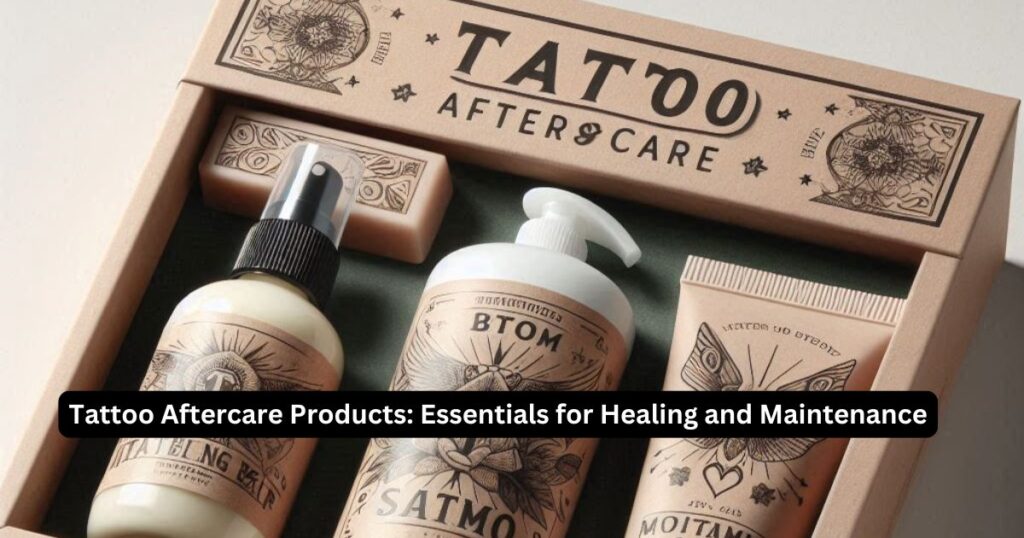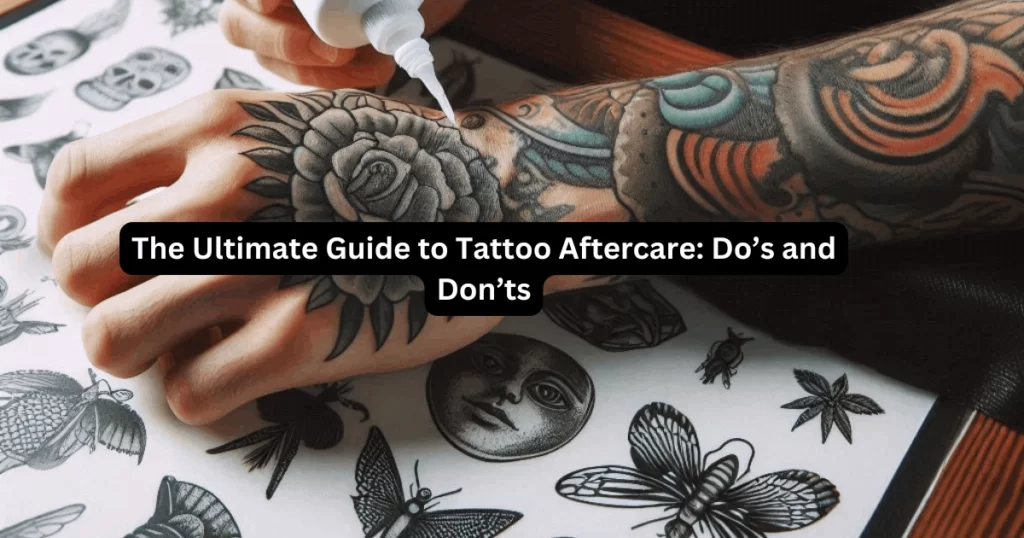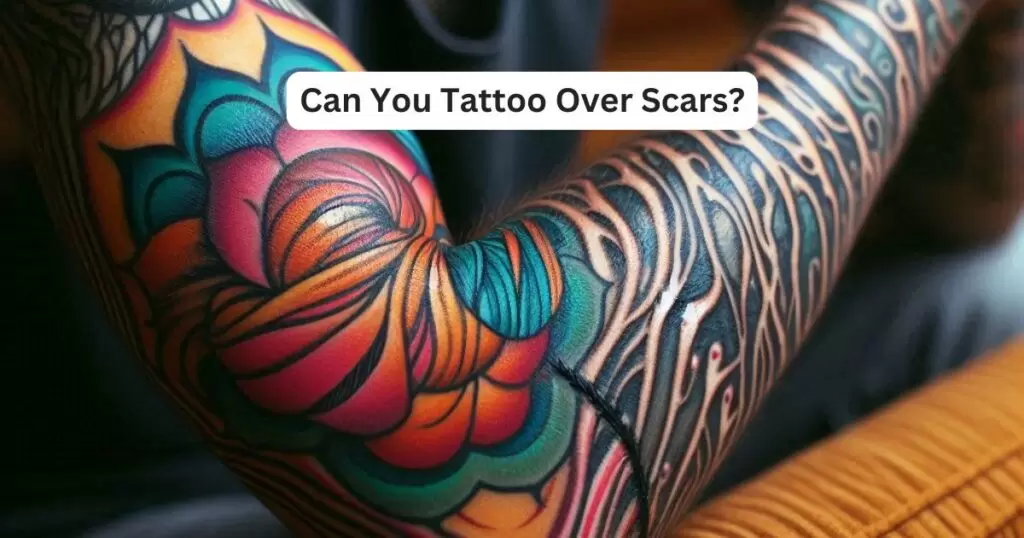Taking care of a new tattoo is crucial for ensuring it heals well and looks its best. Proper aftercare can prevent infections, preserve color, and minimize scarring.
In this guide, we’ll explore the essential tattoo aftercare products: antibacterial soap, moisturizing lotion, ointment, non-stick bandages, and sunscreen.
Antibacterial Soap: The First Step in Tattoo Care
Keeping your tattoo clean is the foundation of good aftercare. Antibacterial soap is essential for this purpose. Choose a mild, fragrance-free soap that won’t irritate your skin.
Why Antibacterial Soap?
New tattoos are essentially open wounds, making them vulnerable to bacteria and infections. Washing your tattoo with antibacterial soap helps remove harmful microorganisms and keep the area clean. Avoid harsh soaps or those with strong scents, as they can cause irritation or allergic reactions.
How to Use Antibacterial Soap
Wash your tattoo gently with lukewarm water and a small amount of soap. Use your fingers to clean the area softly—avoid using washcloths or loofahs, which can be too abrasive. Pat the tattoo dry with a clean towel or let it air dry. Washing should be done two to three times daily, especially after sweating or exposure to dirt.
Moisturizing Lotion: Hydration for Healing
Once your tattoo is clean, keeping it moisturized is the next step in aftercare. A fragrance-free, alcohol-free moisturizing lotion is ideal.
Why Moisturizing Lotion?
Dry skin can lead to itching and peeling, which can damage the tattoo. Moisturizing helps maintain the skin’s elasticity and prevents the tattoo from drying out. This not only makes the healing process more comfortable but also helps the tattoo retain its color and sharpness.
How to Apply Moisturizing Lotion
After cleaning and drying your tattoo, apply a thin layer of lotion. Rub it in gently until it’s absorbed. Avoid applying too much lotion, as over-moisturizing can suffocate the skin and lead to clogged pores or infections. Reapply lotion as needed throughout the day to keep the area hydrated.

Ointment: A Protective Barrier
In the initial days after getting a tattoo, using an ointment can provide an extra layer of protection. Ointments like petroleum jelly or specialized tattoo balms are commonly recommended.
Why Ointment?
Ointments create a barrier that helps lock in moisture and protect the tattoo from external irritants. They also soothe the skin, reducing redness and discomfort in the early stages of healing. However, it’s important to choose a product that’s specifically designed for tattoos, as some ointments can be too heavy and clog pores.
How to Use Ointment
For the first few days after getting your tattoo, apply a thin layer of ointment after washing and drying the area. Like with lotion, use just enough to cover the tattoo without making it greasy. After about three to five days, you can switch to a moisturizing lotion and discontinue the use of ointment.
Non-Stick Bandages: Protecting the Fresh Tattoo
Covering your tattoo with a non-stick bandage can be an effective way to protect it from the elements, especially in the first few hours or days after getting inked.
Why Non-Stick Bandages?
A fresh tattoo is most vulnerable in the first few days, particularly to infections, friction, and dirt. Non-stick bandages provide a protective barrier without sticking to the skin or the tattoo, which could cause damage when removed.
How to Use Non-Stick Bandages
Your tattoo artist will likely apply the first bandage after your session. Leave it on for the recommended time—usually a few hours.
After removing the initial bandage, clean the area with antibacterial soap and let it air dry. If you need to cover the tattoo again, use a new non-stick bandage. Be sure to change it regularly to keep the area clean.
Sunscreen for New Tattoo Sun Protection: Long-Term Protection
Once your tattoo is fully healed, protecting it from the sun becomes essential. UV rays can cause the colors in your tattoo to fade, making sunscreen a must-have in your long-term tattoo care routine.
Why Sunscreen?
The sun’s UV rays can break down the pigments in tattoo ink, leading to fading and dullness over time. Sunscreen acts as a protective layer, helping to preserve the vibrancy of your tattoo.
Even if your tattoo is in an area that’s usually covered, it’s a good idea to apply sunscreen when you know you’ll be exposed to the sun for extended periods.
How to Apply Sunscreen
Choose a broad-spectrum sunscreen with at least SPF 30. Apply it generously to your tattooed skin before sun exposure, and reapply every two hours, especially if you’re sweating or swimming. Make this a part of your regular routine, even on cloudy days or in winter, as UV rays can still affect your skin.
Healing Your Tattoo: What to Avoid
While using the right products is key to tattoo aftercare, knowing what to avoid is equally important. Here are some things to steer clear of during the healing process:
- Scratching or Picking: As your tattoo heals, it may scab or peel. Resist the urge to scratch or pick at the skin, as this can cause scarring and remove ink.
- Soaking the Tattoo: Avoid swimming, hot tubs, or long baths for at least two weeks. Prolonged exposure to water can soften the skin and disrupt the healing process.
- Tight Clothing: Wear loose, breathable clothing over your tattoo. Tight clothing can rub against the tattoo and cause irritation or even pull out some of the ink.
- Sun Exposure: As mentioned earlier, keep your tattoo out of direct sunlight until it’s fully healed. If you must be in the sun, cover the tattoo or use sunscreen with a high SPF.
- Over-Application of Products: More isn’t always better. Whether it’s lotion, ointment, or soap, use only the recommended amounts. Over-application can lead to clogged pores or excessive moisture, hindering the healing process.
Tattoo Aftercare: The Key to Longevity
Taking care of your tattoo doesn’t end once it’s healed. Long-term maintenance is just as important for keeping your tattoo looking its best. Here are a few tattoo ongoing care tips:
- Moisturize Regularly: Even after the healing process, keep your skin hydrated. Healthy skin helps maintain the vibrancy of your tattoo.
- Sun Protection: Make sunscreen a part of your daily routine. Sun damage is one of the biggest factors in tattoo fading, so consistent protection is crucial.
- Touch-Ups: Over time, some tattoos may need a touch-up to restore color or sharpness. Don’t hesitate to visit your tattoo artist if you notice any fading or irregularities.
Final Thoughts: Consistency is Key
Tattoo aftercare is all about consistency. By following these guidelines and using the right products, you can ensure your tattoo heals well and remains a lasting piece of art on your skin. Whether it’s keeping the area clean with antibacterial soap, moisturizing to prevent dryness, or protecting your ink with sunscreen, each step plays a role in the longevity of your tattoo.




